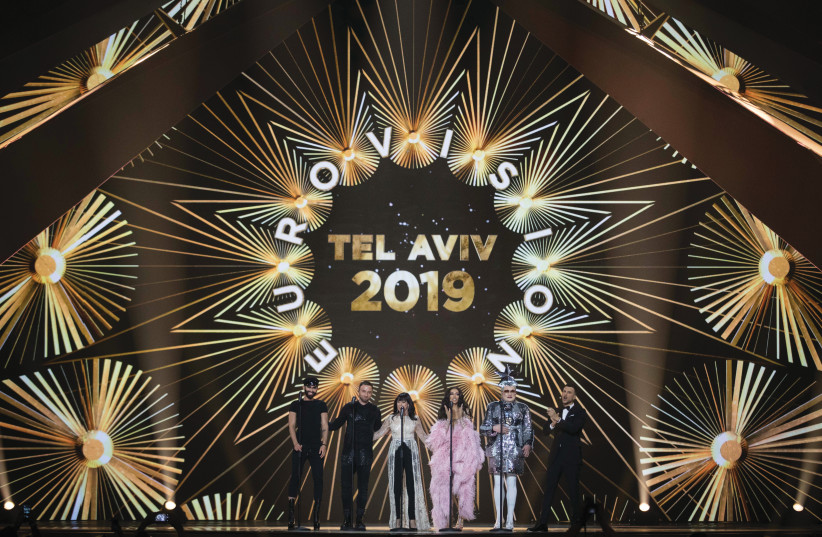Just as there was dancing in the streets of pre-state Israel on November 29, 1947, in the immediate aftermath of the UN General Assembly vote on the partition of Palestine – thereby passing the final obstacle to the establishment of a Jewish state – there was also dancing in the streets, accompanied by the ongoing blare of car horns, in 1978.
That was when Izhar Cohen, who sang “A-Ba-Ni-Bi,” was the first Israeli winner of the Eurovision Song Contest in Paris, only five years after Israel first entered the competition.
This year marks the 50-year jubilee of Israel at Eurovision.
Israel's history at the Eurovision Song Contest
Although it is rare for any country to win the European Song Contest in two consecutive years, Israel was one of the very few countries that did, with Gali Atari and Milk and Honey winning with “Hallelujah” in 1979.
Amazingly, Israel hosted the 1979 contest in the conservative environment of Jerusalem long before an LGBTQ lifestyle was legalized. Yet it is a well-known fact that a considerable number of the Eurovision contestants are members of LGBTQ communities and make no secret of their sexual orientation.

There were also a lot of problems related to Shabbat rehearsals in the holy city.
Somehow Israel overcame these problems and after the 1979 results were announced, car horns blared through Jerusalem again, and here and there groups of people began to dance spontaneously.
Israel is one of only three countries that have been Eurovision winners for two years in a row. The others are Luxembourg, which won in 1972 and 1973; and Ireland, which won in 1992 and 1993. Ireland is also the most frequent winner, with seven triumphs to its credit. It is followed by Sweden with six; and France, Luxembourg, the United Kingdom and the Netherlands with five wins each. Israel is in fourth place with four wins, and it remains to be seen whether Noa Kirel will succeed in winning this year with “Unicorn” and thus move Israel up to third place in the total number of wins.
FOR FINANCIAL reasons, Israel did not host the 1980 Eurovision contest, which was moved to The Hague; and because the date conflicted with Memorial Day for Fallen Soldiers, Israel did not participate that year.
It was not until 1998 when Dana International won in Birmingham with “Diva” that Israel scored its third victory, although there had been some excellent Israeli entries in the interim.
Many Israelis attributed the long hiatus to politics or antisemitism, which was strongly denied by the European Broadcasting Union, under whose auspices the Eurovision Song Contest is run.
Nonetheless, it took a very long time before Netta Barzilai romped home victorious from Lisbon with “Toy” in 2018, thus providing Israel with an opportunity to show the world that it is much more than a Start-Up Nation or a military power, but it also has wonderful tourist attractions and its hospitality is certainly worth the many plaudits that it received afterwards.
Aside from whether or not Kirel will win, the question now remains as to whether she will be Israel’s last ever contestant at Eurovision.
All participating countries have public broadcasting networks that are affiliated with the EBU, which has warned that if Israel abolishes public broadcasting, as is the intention of Communications Minister Shlomo Karhi, Israel will lose the right to compete.
Does Israel want this to happen?
Can Israel afford for this to happen?
On the other hand, if Kirel wins, after the great job that Israel did in 2019 this country will have the foundation on which to build and to prove that it can be bigger and better at hosting the 2024 Eurovision Song Contest, after which the world may well look at Israel with a much less jaundiced eye.
